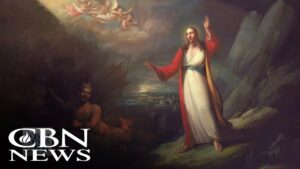William Menzies: Seven Characteristics of Early Pentecostals
This Week in AG History — November 24, 1974 By Darrin J. RodgersOriginally published on AG-News, 23 November 2022 The year was 1974, and the Assemblies of God was celebrating its 60th anniversary. The first generation of Pentecostal pioneers was … Continue reading

This Week in AG History — November 24, 1974
By Darrin J. Rodgers
Originally published on AG-News, 23 November 2022
The year was 1974, and the Assemblies of God was celebrating its 60th anniversary. The first generation of Pentecostal pioneers was aging, but a new outpouring of the Holy Spirit – the charismatic renewal – was sweeping through mainline, evangelical, and Pentecostal churches.
William W. Menzies, a prominent Assemblies of God historian and theologian, seized the opportunity to recount the compelling faith and worldview of early Pentecostals. In an article published in the Thanksgiving 1974 edition of the Pentecostal Evangel, Menzies gave “thanks for our heritage” – sharing the works of God among early-20th-century Pentecostals with newer generations.
Menzies spent years thinking deeply about what it meant to be a Pentecostal. His 1971 book, Anointed to Serve, was birthed out of his doctoral dissertation and became a benchmark history of the Assemblies of God. He melded the insight of an academic with the heart of a pastor. In his 1974 article, Menzies aimed to communicate not just the doctrinal beliefs of early Pentecostals, but also the worldview that inspired countless believers to desire to be fully committed to Christ and His mission.
Early Pentecostals exhibited seven characteristics, according to Menzies, that helped form their identity. First, early Pentecostals were keenly aware of the reality of the power and presence of the living God. They insisted that Christians should have a transformative encounter with God – where “the resurrected Christ” becomes “intensely real and very much alive.” Menzies was concerned that “the sense of the holy” might be cheapened in some quarters “by raucous music and whipped-up enthusiasm.” Early Pentecostal spirituality, according to Menzies, was “bathed in prayer” and a sense of God’s presence.
Second, Menzies identified expectancy as a mark of early Pentecostals. Pentecostals witnessed God’s power in their church services and in their ministry and lives outside of the church building. The Christian life was an adventure – following God meant being part of a great story that was unfolding each day. Church services were often exciting and marked by a degree of spontaneity that was in contrast to some of the formal patterns of older denominations.
The third characteristic of early Pentecostals was fidelity to the authority of Scripture. This section in Menzies’ article was longer than any of the other six sections. While certain early Pentecostals overemphasized experience at the expense of biblical authority, Menzies noted that the Assemblies of God provided a stable, mature voice within the movement. The Assemblies of God Statement of Fundamental Truths, adopted in 1916, opened by stating: “The Bible is our all-sufficient rule for faith and practice.” All theology, emphases, and teachings were judged by and subordinate to the Word of God.
Simplicity, according to Menzies, was the fourth trait of early Pentecostals. They created ecclesiastical structures “only as necessary,” which Menzies described as “a holy pragmatism.” Believers placed greater emphasis on local evangelism than on crafting resolutions addressing social and political problems at the national level.
Menzies identified faith as the fifth characteristic of early Pentecostals. He wrote, “early pioneers of Pentecost lived as if Jesus Christ were real.” They desired to be fully consecrated to Christ and His call, they brought the gospel to cities and nations at great personal cost, and they exhibited a bold faith that was accompanied by manifestations of God’s power.
The sixth characteristic of early Pentecostals was joy. Menzies noted that he ran across a 1924 article by a critic who described his visit to a New York Pentecostal mission. After a scurrilous attack on the mission, the critic wistfully noted “that on the faces of the humble people who worshipped there was a remarkable joy, a kind of countenance he did not detect on the faces of those who worshipped in the more respectable houses of the Lord.” Menzies wrote, “Ours is a day starved by the coldness of scientific rationalism. There is nothing so captivating as joy. And the Holy Spirit has come to lift the believer into a fuller realization that our Lord lives and that He has come to give us abundance of life. In His presence is fullness of joy!”
Testimony was the seventh trait of early Pentecostals. An authentic expression of a transformed life, the testimony showed how God became real to Pentecostals. Testimonies demonstrated God’s power over sin and deliverance from sickness. The Holy Spirit empowered Pentecostals to share their testimonies, and these personal stories of God’s work became an important part of Pentecostal church services and evangelism. Pentecostals would tell and retell their testimonies until they became part of their identity.
These seven characteristics of early Pentecostals were interrelated and existed as part of the early Pentecostal worldview. These different traits flowed from and supported each other. One might even think of these characteristics as part of the ecosystem of early Pentecostalism.
With each year, we become further removed from the generation that birthed the Pentecostal movement. Menzies spent years thinking deeply about the worldview of early Pentecostals, understanding that early Pentecostals could not be understood merely by looking at their doctrinal statements. Reflecting on lessons from the early Pentecostal worldview may inspire future generations to likewise seek to be fully consecrated to Christ and His mission. Menzies gave thanks for his Pentecostal heritage, and perhaps we should, too.
Read William W. Menzies’ article, “Giving Thanks for Our Heritage,” on pages 4 – 6 of the Nov. 24, 1974, issue of the Pentecostal Evangel.
Also featured in this issue:
• “Thankfulness: The Christian Distinctive,” by Thomas F. Zimmerman
• “Thanksgiving — to the Lord,” by Stanley M. Horton
And many more!
Click here to read this issue now.
Pentecostal Evangel archived editions courtesy of the Flower Pentecostal Heritage Center.
Do you have Pentecostal historical materials that should be preserved? Please consider depositing these materials at the Flower Pentecostal Heritage Center (FPHC). The FPHC, located in the Assemblies of God national offices, is the largest Pentecostal archive in the world. We would like to preserve and make your treasures accessible to those who write the history books.
Flower Pentecostal Heritage Center
1445 North Boonville Avenue
Springfield, Missouri 65802 USA
Phone: 417.862.1447 ext. 4400
Toll Free: 877.840.5200
Email: archives@ag.org
Website: www.iFPHC.org




